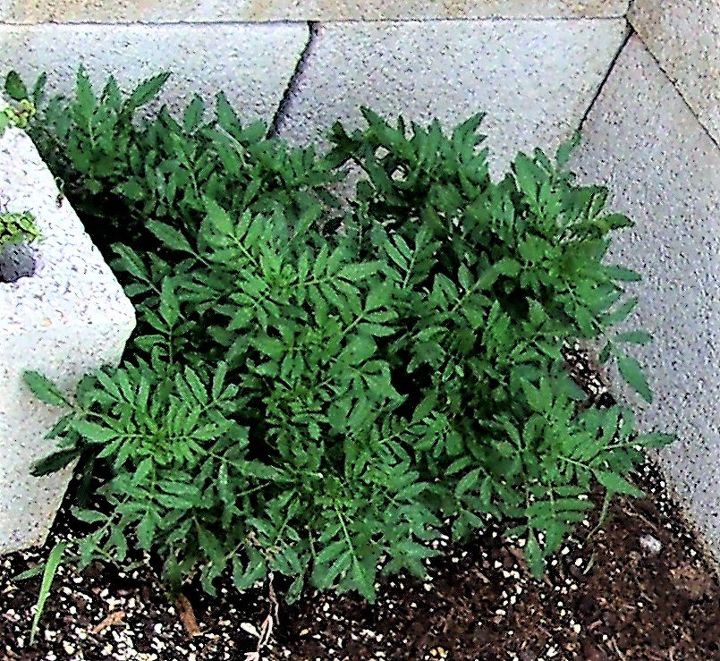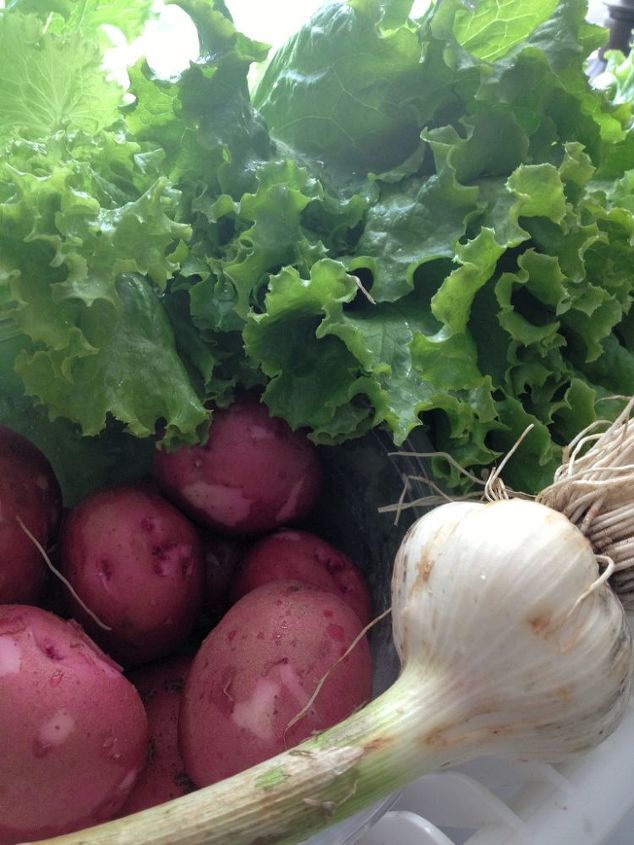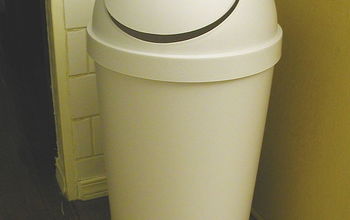How can I use salt to solve garden problems?
Related Discussions
GNATS - How to get rid of them?
Somehow my house and garden got tiny gnats that killed my fuchsia plant and fly everywhere. I have tried ALL the Web recommendations - soap and oil dishes, sand in th... See more
Marigolds growing! Should I pinch the buds?
My marigold plants are growing. I heard that pinching the buds until Autumn will allow them to grow without killing the plant. Is this true?
Growing garlic
Growing our first garlic, should we wait until the leaves are drying out before we pick it? Husband picked first one today along with our first potatoes.
How to keep mice out of your garden?
Hi everyone, I have mice in my garden destroying my vegetables and I have also noticed them in the barn and shed. Please can someone tell me how to prevent them from ... See more
What's the best flower/plant to grow in Texas?
I know that opinions vary, but what's your opinion?!I have great luck w Rosemary plants. Green all year long.
Can I use pool backwash water on the lawn or garden
Can I use tar paper instead of garden fabric on my flower beds?
I have a lot of ?Gout Weed throughout my gardens and I want to smother them out? Becayse I have so many gardens it would be too expensive to cover them all with garde... See more



Epson salt by itself can work as a fertilizer. Vinegar, salt and several drops of blue Dawn work as a weed killer.
What are the "garden problems"??? Need specific for any good problem solvers. Best for any garden clean healthy organic compost creates healthy living soil which provides plants with everything they need to grow and flourish.No chemicals, especially salt or dish detergents with phosphates,no pesticides,chemical fertilizers or herbicides.these kill soil microbes,beneficial bugs which are all needed in healthy growing system. Table salt ----- kills plants and microbes in soil making nothing grow,so only problem solver it is, kills unwanted plants & soil so nothing will regrow. Epsom salts-----Gardeners love a DIY cure-all. There's something that can help in all corners of the garden and targets many common problems? Sign me up! Scientific evidence on the use of Epsom salts in the garden, however, is limited at best.
In reality, while magnesium sulfate is highly soluble, it’s entirely possible for it to become a contaminant. And while it’s an attractive option for gardeners on a budget, it doesn’t provide the value it claims to offer.Plants require nutrients to grow and flourish. However, plants don't need magnesium and sulfur in large doses. They’re necessary for growth, but it’s unlikely that your small plot of vegetables or entry-way rose bush is deficient in either nutrient.
Besides, the only way to know whether your plants are missing a specific nutrient or trace mineral is to get your soil tested. Adding magnesium sulfate to your garden willy-nilly isn’t a good idea. In addition, organic amendments such as mulch or compost typically provide plants with all the Mg and Su they need to thrive.magnesium sulfate, while often marketed and described as a way to “feed” plants, is anything but a significant nutrient source. More important are nitrogen, potassium, and phosphate (NPK). Don’t be fooled, Epsom salt has an NPK value of 0-0-0. It's not a significant nutrient source.Epsom salts are also often recommended for use with tomatoes and peppers because it can prevent diseases like blossom end rot.Here’s the kicker, adding magnesium when there is no real deficiency can cause the disease in question by limiting a plant’s ability to absorb nutrients such as calcium. A lack of calcium, by the way, is the real culprit of blossom end rot.Adding Epsom salt in small quantities may not have a significant effect on the nutrient composition of your soil, but excess magnesium can readily leach out from the earth and contaminate nearby water supplies. Essentially, it becomes a pollutant. Similarly, spraying a diluted Epsom salt solution onto plant leaves can cause leaf burn, which in turn can leave your plants vulnerable to disease and actually attract pests to your garden.
Hi Joyce. I have been gardening for many years. I have never heard of putting salt in a garden. Salt will kill anything it touches. And it will prevent anything from growing in the area for years.
Possibly in conjunction with other items for weeds?
https://www.hometalk.com/diy/outdoor/pest-repeller/diy-weed-killer-38537988?
https://www.hometalk.com/diy/outdoor/pest-repeller/s-9-natural-weed-killers-that-will-save-your-summer-garden-17001086?
https://www.hometalk.com/diy/outdoor/pest-repeller/natural-weed-killer-20665086?
DIY Weed Killer
Natural Weed Killer
Salt and vinegar will kill anything it touches and change the soil composition for quite a while so nothing will grow. Salt also leaches into the groundwater, which eventually leads to fresh water streams, rivers, and lakes, even drinking water and changes the salinity, which is making some fresh water change the flora and fauna from what it is supposed to be. There is even documentation that some large cities that use salt on the streets have it getting into the drinking water.